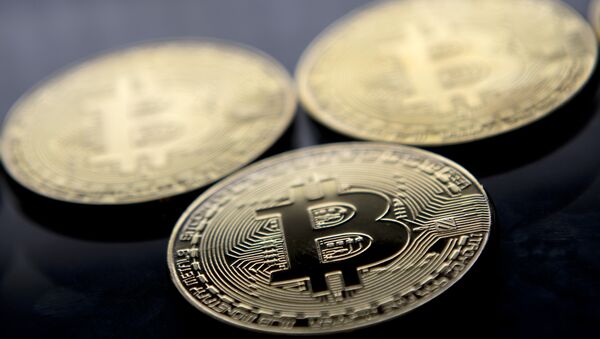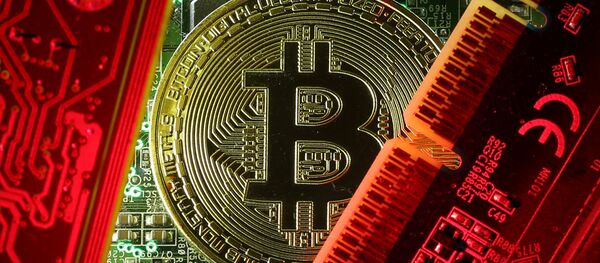Simon Dingle: This is an expected response from regulators, as Bitcoin grows in adoption and becomes more mainstream, we’d expect regulators to start poking up and looking at their role in terms of policing this new system.
Sputnik: Do you think that identifying individuals holding Bitcoin will prevent these issues? What other effective measures could be set by the government? Or is just regulation and oversight the way forward?
Simon Dingle: I have some amount of doubt that there are issues, to begin with. So, whether or not these moves would stop a sort of a secondary concern, from my perspective. I think when it comes to policing the interchanges between fiat currencies and cryptocurrency, there’s certainly a lot regulators could do. And identifying people on Bitcoin exchanges in Europe is certainly one way that regulators could look to prevent these perceived issues. But a lot of activity on the blockchain and in cryptocurrency takes place in decentralized exchanges and beyond the control of regulators. So once one moves into cryptocurrency beyond the gateways with fiat currencies there’s really not very much that regulators can do in terms of policing the measures they put in place.
Sputnik: Do you think an advent of regulation and oversight is going to have an effect on the price of Bitcoin after all? It’s a very volatile currency, isn’t it?
Simon Dingle: I doubt it. We’ve seen measures taken by regulators in Asia in the extreme form – China, coming up against cryptocurrencies and the trading of them quite strongly. And it had little to no effect on the price. To say that it has zero impact wouldn’t be accurate, it has some effect, but cryptocurrencies seem to bounce back very quickly from these moves. I think for most people trading cryptocurrency at the moment, this one thing that would concern them certainly concerns any criminals using the cryptocurrency, but I think it’s fair to say that it’s a small fraction of the community.
Sputnik: How are they going to impose regulation? What are they going to look at in terms of this oversight and managing it? You are an expert and a blockchain specialist and investor. Have any of these regulators come and spoken to you about a whitepaper, how they could possibly begin to even regulate this? Are you in communication with anybody?
Simon Dingle: I’ve mostly been in communication with regulators in Africa, who are quite open-minded about what’s going on. I think there’s a level of honesty as well about how difficult it would be to police the space. Technologically, if we look at other networks that have come before cryptocurrency and we think of something like BitTorrent, for example, which was pertinent in discussions surrounding content piracy, regulators were very heavy-handed in trying to stop the piracy of online content, with little to no effect, because one can’t police a distributed or decentralized network, it just isn’t possible when you’ve got a critical mass of people doing something they don’t perceive a victim in their actions, or they have little sympathy for the victim, which in this discussion would be in Hollywood, which preceded to have 10 most profitable years in history after BitTorrent was launched. There is little sympathy from the public and there’s not much regulators can do. And again with content piracy we saw that they weren’t able to stop it in any effective way. So, when you’ve got a decentralized network, which is what Bitcoin is, you’ve got enough people on that network doing it, you really need to compel them to stop. You know, you can’t stop them physically unless you are willing to turn off the internet.
Sputnik: Do you think it’s a way of the European Union trying to control and manage this cryptocurrency, where they have concerns of it, you know, spiraling out of any kind of management control?
Simon Dingle: I tend away from conspiracy theories, so I think we could take what regulators are saying at face value. I think there are very real concerns around terrorism and money laundering. And regulators are tackling the problem, I think. If they were thinking more long-term, as things like Bitcoin were intended to be, the Satoshi Nakamoto whitepaper isn’t very ambiguous, about the intention to wipe out central banks in their entirety. I just don’t think regulators take that existential threat, if you will, seriously enough. If they were, there perhaps would be taken further measures trying to stop Bitcoin. Again, there’s not much they could do, but they would certainly be trying harder. I think regulators are really focused on money laundering, predominantly, and terrorism as probably a secondary concern.
The views and opinions expressed by Simon Dingle are those of the expert and do not necessarily reflect Sputnik’s position.





